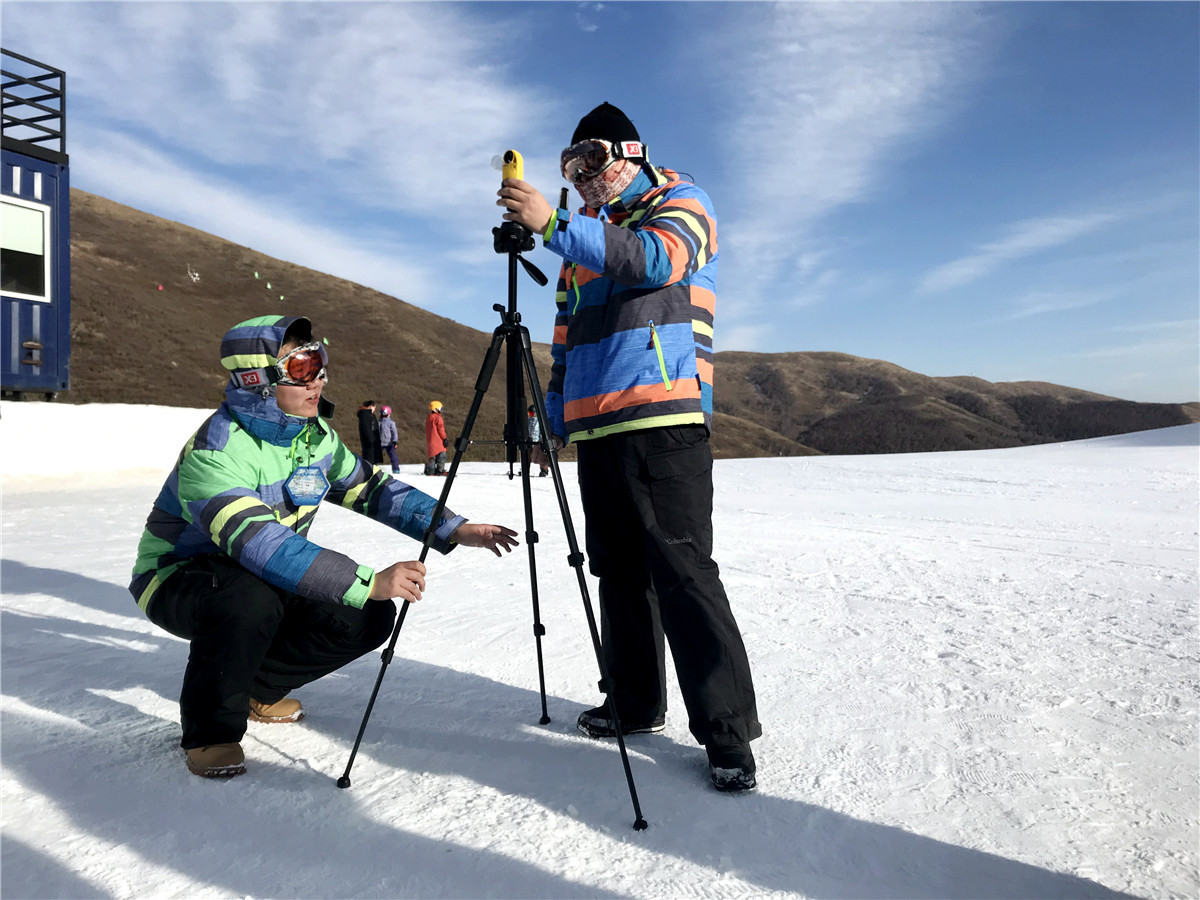Officials from the Beijing Organizing Committee for the 2022 Olympic and Paralympic Winter Games will cooperate closely with the weather forecasting team and take the measures necessary to tackle any negative climate impact on the competition.

Members of the 2022 forecasting team use portable equipment to assess weather conditions in Zhangjiakou, Hebei province, in January. (Photo: China Daily)
Yang Yang, deputy head of the committee's sports department, who took part in the preparations for the 2008 Beijing Olympic Games, said that unlike the Summer Games, the winter competition is more likely to be affected by the weather.
"Every day of the Summer Olympics' schedule is almost fixed, while the winter schedule depends on accurate weather data to decide whether a competition will be canceled or not," he said.
According to Yang, normally, when the wind speed exceeds 17 meters per second or the temperature falls below-25 C, a competition can be canceled because the athletes are likely to sustain injuries under those conditions. Low visibility can also cause athletes to leave the set routes and pick up injuries.
"We need to work closely with the weather forecasting team during the Games. All departments should adjust their plans appropriately," he said.
For example, if it is not possible to cancel mountain-based competitions-as sometimes happens in the event of excessively strong winds-the committee will consider starting races lower down the hill.
If a heavy snowfall occurs, the committee will ensure that excess snow on pistes and runs will be cleared away, so all the athletes will compete under the same conditions. In addition, urban emergency teams will be on hand to remove ice from approach roads.
All host cities have to meet standards set by the International Olympic Committee: The average temperature in January and February must be lower than 0 C and the snowfall in February must be heavier than 30 centimeters. The probability of meeting these conditions must be assessed as more than 75 percent.
Beijing will be the first city with a continental monsoon climate to host the Winter Olympics. The capital's climate features low temperatures, strong winds and extremely dry air, which winter sports competition zones usually avoid.
"These factors make things very challenging. We lack a data reserve for meteorological forecasts," Yang said.
Shi Shaoying, leader of the forecasting team in Yanqing, one of three competition zones, said that to better serve the Games, monitoring systems have been installed to provide minute-by-minute weather updates.
In November, Beijing's meteorological service developed a new system specifically for the 2022 Winter Games. The system, which has already been used in Yanqing, a northeastern suburb of Beijing, can target areas at a radius of 100 meters around the competition zone, whereas previous systems could only target areas of 1-kilometer radius.
The meteorological equipment and forecasting experience developed for the Games will be adapted to aid the development of the winter sports industry in the area around Beijing.
Yan Wei, head of the Yanqing meteorological service, said that after the Winter Olympics, the district will deepen its focus on the development of the winter sports sector.
"We will build our own forecasting team under the guidance of the Olympic forecasting team, so that after the Winter Olympics, we will be able to provide specific services for the ice-and-snow economy," he said.


